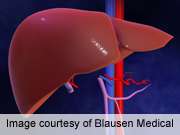Living liver donors from Japan have higher health-related quality of life than the Japanese norm population, according to a study published in the November issue of Liver Transplantation.
(HealthDay)—Living liver donors from Japan have higher health-related quality of life (HRQOL) than the Japanese norm population, according to a study published in the November issue of Liver Transplantation.
Yasutsugu Takada, M.D., Ph.D., from Ehime University in Toon, Japan, and colleagues studied the long-term effects of living donor liver transplantation on the HRQOL of 578 donors using the Short Form-36 health survey.
The researchers found that, across all time periods, norm-based HRQOL scores for donors were better than the scores for Japanese norms. Age, the number of months until recovery to the preoperative health status, hospital visits due to donation-related symptoms, rest from work related to donation in the past month, and the existence of two or more comorbidities correlated significantly with reduced HRQOL scores for all donors. Recipient mortality and postoperative complications were not predictors of poor HRQOL.
"HRQOL was better for both right lobe donors and left lobe donors versus the Japanese norm population in the long term (mean post-donation period = 6.8 years). However, the prolongation of symptoms or sequelae related to donation lowered mental health or social functioning. The emergence of comorbidities after donation also significantly affected HRQOL in the long term," the authors write. "Careful follow-up and sustained counseling are required for donors with risk factors for lower HRQOL."
More information:
Abstract
Full Text (subscription or payment may be required)
Editorial (subscription or payment may be required)
Journal information: Liver Transplantation
Copyright © 2012 HealthDay. All rights reserved.



















